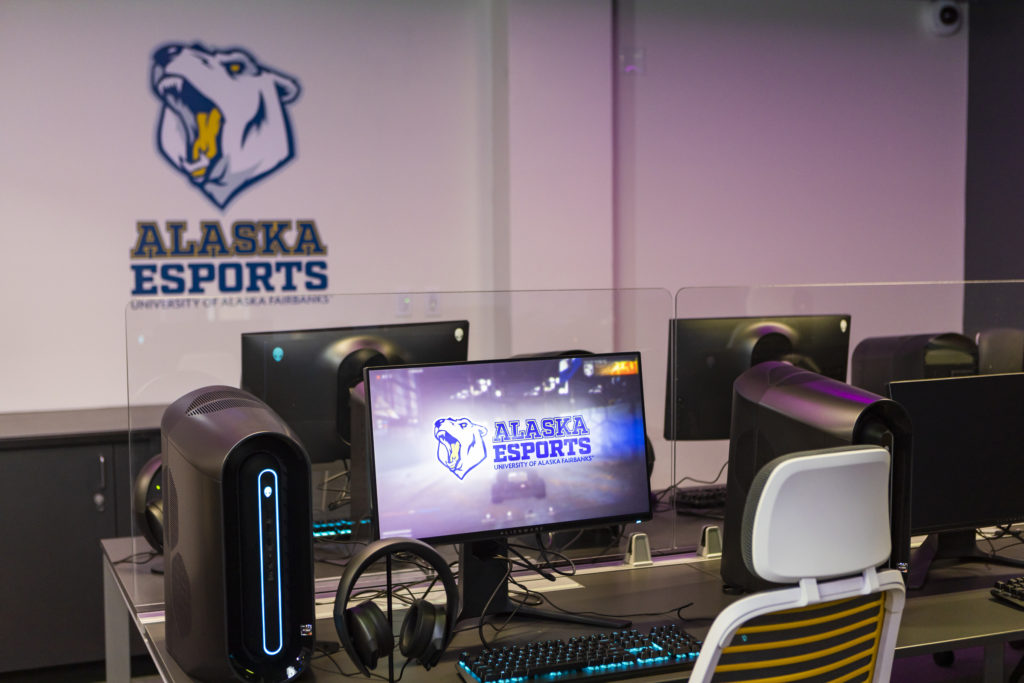In the last month, schools across the country reopened — some in-person, some hybrid, but all in the same position of having to help students rebuild their skills after an unprecedented year. For instructors, the question has become: how to effectively engage and connect with students in an increasingly digital learning environment? Over the past year and a half, many schools in Alaska have explored one potential answer to this question: esports.
More specifically, schools have stood up esports clubs and tournaments to provide gamers with the structure and discipline they need to excel in the sport while still having fun. In this context, a video game becomes much more than a game — it becomes an educational opportunity. Like a physical team sport, such as basketball or football, esports offer students the benefits of regular training schedules and chances to compete. Any group activity that enables students to think of themselves as part of a team and requires them to maintain good grades in order to participate is beneficial.
The Unique Benefits of Esports
In addition to all the benefits of a traditional team sport, esports offers students unique benefits, due to its nontraditional format. These benefits include:
- Building 21st century skills: By virtue of the format, esports help students improve their computer literacy and ability to manipulate technology. For those interested in diving into the mechanics of esports, game development provides additional learning opportunities. Students can learn how to code, use graphic design software or mix audio. These skills can be enormously beneficial in their careers.
- A leveled playing field: Not everyone can race at a track meet or hit a ball, but anyone can play a video game. Though esports do help develop quick reflexes, they don’t come with the need to be able to run a four-minute mile. This enables students who are not as athletically inclined to engage in team sports. It also provides additional opportunities for disabled students to get involved in extracurricular activities.
- Appealing to a new and underserved demographic: Most schools have found that the students signing up for esports clubs might not otherwise be interested in sports or clubs of any kind. This is a great opportunity for schools to reach students on their level and to engage them in team-building activities. It’s also a good way of expanding extracurricular offerings and broadening the appeal of afterschool activities.

From Club to Center: The Growth of Esports at University of Alaska Fairbanks
Skill-building with Esports
Everyone can see the immediate value of building up 21st century skills in today’s tech-forward society. What people may not realize is that esports also help students build more fundamental skills, which can be grouped into three primary categories:
- Communications skills: In order to work together effectively as a team, esports players must be able to communicate with each other, both in gaming situations and out. During a tournament, for instance, a team will be in constant communication, coordinating as a group to achieve a common goal. Outside of the competition, students will learn how to communicate about their experiences, successes and opportunities for further growth.
- Social skills: As team sports, esports bring students together around shared objectives and experiences. Students learn to work together, build community, accept and respond to feedback, and compete with grace in tournament settings. This opportunity to be part of a team and work together toward a common goal will help prepare students for future working experiences.
- Critical thinking skills: By design, esports place gamers in situations where they have to analyze a great deal of information, assess their options and execute the best plan of action based on their team’s skill set. This ability to problem-solve under pressure will be immensely valuable for students, whether they pursue esports professional or choose a different career path.
What’s Next for Esports in Schools?
This year, we expect to see more and more schools and instructors turn to esports as valuable skill-building tools in the midst of the pandemic. Esports will be a natural compliment to virtual classrooms and our increasingly tech-mediated society. In the years to come, it will be critical for students to understand how to work through and around technology in various situations, including classrooms, afterschool activities and the workplace. Getting students involved and engaged with esports now will help rebuild the skills lost in the past year and prepare them for the digital future.
Interested in learning more about esports in Alaska’s schools? The Alaska School Activities Association has partnered with PlayVS to host state esports leagues and competitions. The official state leagues focus on four games: League of Legends, Rocket League, Madden 21 Trios, and FIFA 21 Trios. Check out the PlayVS website for the 2021-2022 schedule, which kicks off on September 13.